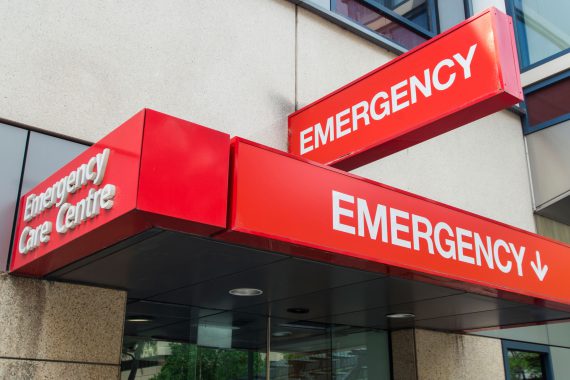Revealed: NHS’s plans to bar patients from attending A&E without a referral

Exclusive NHS England is considering pilots to stop walk-in patients attending A&E departments, requiring them to be referred by a GP or NHS 111.
Dr Helen Thomas, national medical advisor for integrated urgent care at NHS England, said NHS England ‘may well pilot’ a ‘talk before you walk’ scheme that requires all patients – unless they come via ambulance – to be referred or speak with a GP or other clinician before attending A&E.
She suggested that the talks have involved the health secretary at some level, but added that they were at an early stage.
It is an attempt to reduce demand that is threatening to engulf secondary care and emergency care services this winter.
Pulse has already reported that patients are having to wait 13 hours to be seen at A&E, while other hospitals are having to enlist GPs to help them reduce their waiting lists for referrals and others have sent patients out of county for certain specialties.
This latest suggestion, however, would stop patients from attending A&E without a referral from elsewhere.
Dr Thomas said: ‘[Health secretary] Jeremy Hunt has mentioned to some of my colleagues, maybe we should have a “talk before you walk” and we may well pilot that.
‘I think it’s been done in other countries where they’ve actually said you can’t come into ED until you’ve talked on referral or you have to have that sort of docket that you’re given by having talked on the phone that you do need to come to ED.’
Dr Thomas added that while piloting such a scheme would be a political ‘hot potato’, a pilot in just one area would yield ‘some really interesting information’.
Speaking at the Urgent Health UK conference to out-of-hours providers on the future of urgent care in the wider NHS, she said that out of 100 patients that come to A&E ‘only 20 have called 111’.
She said: ‘So I think that other 80 – there is opportunity there. Some of them will need ED but there’s an awful lot that won’t.’
Speaking to Pulse, Dr Thomas said that the discussions of a pilot are in the early stages and admitted that ‘it’s going to be tricky to do it’.
She said at the conference: ‘The difficulty is we have to then have an alternative solution other than A&E within four hours and that might put pressure on out-of-hour provision, that you would have to see this patient within four hours and there is some thought about that within NHS England to ask you to do that.’
Dr Simon Abrams, chair of Urgent Health UK, which represents out-of-hours said that while the pilot will ‘inevitably’ put more pressure on out of hours services, he said it is an ‘interesting proposal’ that has the potential to provide better care for patients.
He said: ‘It might reduce the workloads of A&E departments, which on the whole is staffed by very junior doctors and if you can put a slightly more senior doctor over the telephone to that patient, maybe you can provide better care.’
He added: ‘So much of what is happening now is about getting the right clinician and the right care for the problem that the patient is presenting.’
But Dr Abrams said the idea ‘needs a lot of thinking through’, adding that ‘whether it will be acceptable either to a political party or to patients, I don’t know’.
The Department of Health and NHS England both denied the story. Click here for their full comments.
How secondary care services are already beginning to struggle
In Cambridgeshire, Addenbrooke’s sent a letter to GPs warning its medical decisions unit was ‘currently full and there are patients within the emergency department awaiting admission that cannot be placed into inpatient beds due to a lack of bed capacity’.
Meanwhile, NHS England has already launched a scheme to triage patients at the door of A&E, sending some to co-located primary care services.
Pulse has also reported that GPs in Lincolnshire are being asked to consider alternative providers outside of the county for non-urgent ear nose and throat (ENT), cardiology, neurology and dermatology services, while GPs in the north of the county have been asked to review referrals and take on patients to tackle a backlog of 30,000 patients waiting for treatment.









